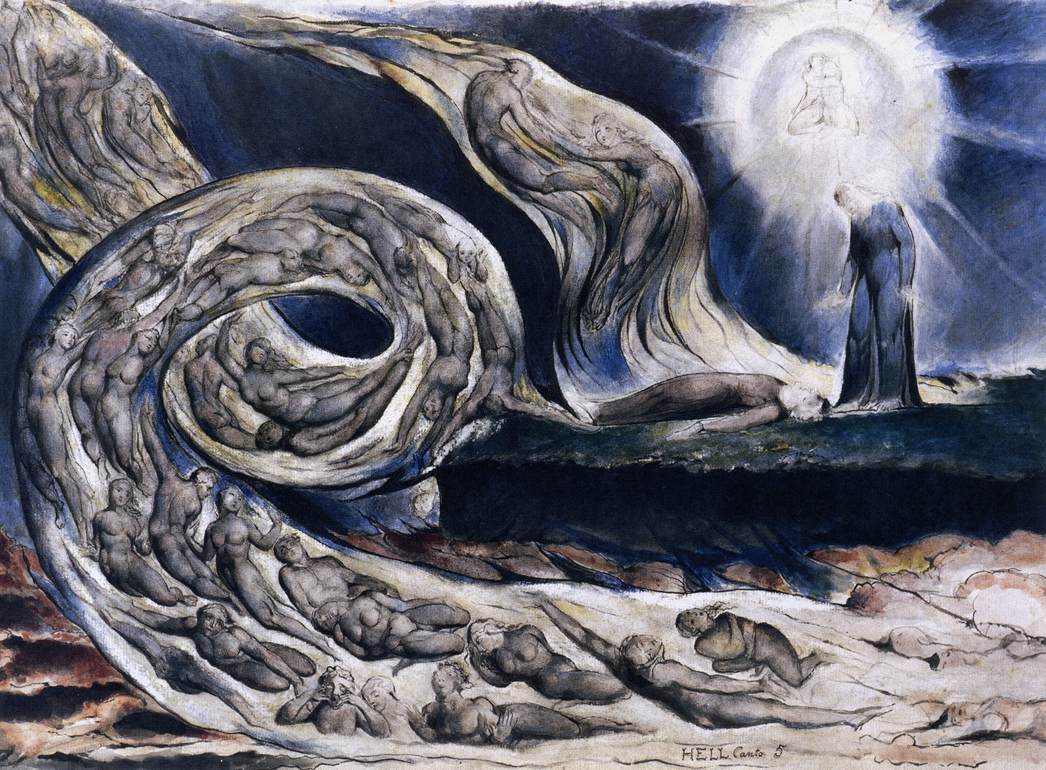In this circle, Dante sees Semiramis, Dido, Cleopatra, Helen of Troy, Achilles, Paris, Tristan, and many others who were overcome by sexual love during their life. Dante is told by Francesca da Rimini how she and her husband's brother Paolo Malatesta committed adultery, but then died a violent death, in the name of Love, at the hands of her husband, Giovanni (Gianciotto). Francesca reports that their act of adultery was triggered by reading the adulterous story of Lancelot andGuinevere (an episode sculpted by Auguste Rodin in The Kiss). Nevertheless, she predicts that her husband will be punished for his fratricide in Caïna, within the ninth circle (Canto V).
The English poet John Keats, in his sonnet "On a Dream," imagines what Dante does not give us, the point of view of Paolo:
 |
| The Circle of the Lustful, Plate 10 of Blake's Illustrations of Dante's Inferno |
From Inferno V:
I came into a place mute of all light,
Which bellows as the sea does in a tempest,
If by opposing winds 't is combated.
The infernal hurricane that never rests
Hurtles the spirits onward in its rapine;
Whirling them round, and smiting, it molests them.
When they arrive before the precipice,
There are the shrieks, the plaints, and the laments,
There they blaspheme the puissance divine.
I understood that unto such a torment
The carnal malefactors were condemned,
Who reason subjugate to appetite.
And as the wings of starlings bear them on
In the cold season in large band and full,
So doth that blast the spirits maledict;
It hither, thither, downward, upward, drives them;
No hope doth comfort them for evermore,
Not of repose, but even of lesser pain.
And as the cranes go chanting forth their lays,
Making in air a long line of themselves,
So saw I coming, uttering lamentations,
To sensual vices she was so abandoned,
That lustful she made licit in her law,
To remove the blame to which she had been led.
After that I had listened to my Teacher,
Naming the dames of eld and cavaliers,
Pity prevailed, and I was nigh bewildered.
And I began: "O Poet, willingly
Speak would I to those two, who go together,
And seem upon the wind to be so light."
No comments:
Post a Comment